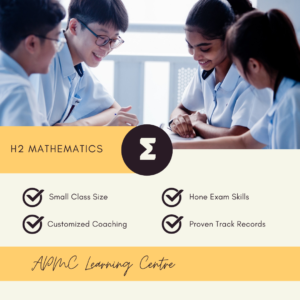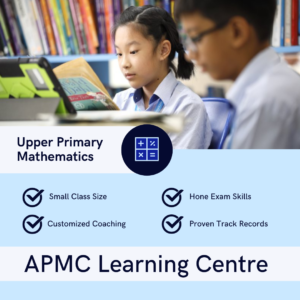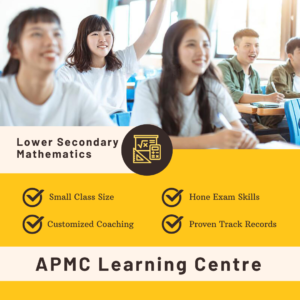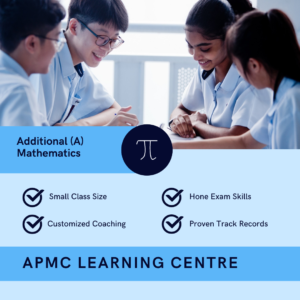JC Physics Tuition | H1 Physics | H2 Physics
JC Physics Tuition at APM Tuition is designed to help students manage and adjust to the intensity of a whole new level of Physics. By incorporating a higher level of mathematical rigour, our H1 and H2 Physics lessons are unique and powerful with curriculums that cover relevant topics and equip the students with the ability to map knowledge of different topics to excel in examination conditions.
With a small class size, a maximum of 8, we ensure that every student receives our dedicated attention. We champion consistency and active learning in students, equipping them with the skills and wits to carve out their edge in the subject and eventually Ace the Level Examination.
JC Physics Tuition at APM is customized to cater to different students’ needs. Students will receive tutorials aligned with their school syllabus to ensure a complete reinforcement of concepts and ample practice. Our notes, tutorials and practice papers are constantly updated with current questions to ensure students are equipped with the necessary skills and knowledge. Each set of notes and tutorials helps students develop fundamental techniques to solve routine questions, apply complex concepts and hone critical reasoning skills for tackling nonroutine problems that include real-world contexts.
Practice tests and mock practice papers that mirror actual examination conditions help give students the practice and confidence needed to ace their examinations. Revision packages are provided to help students consolidate their knowledge, review the typical questions for each topic and gain awareness to avoid and correct common mistakes through error analysis practices.
JC Physics Tuition Curriculum
Measurement
- Units
- Tables and Graphs
- Errors and Uncertainties
- Scalars and Vectors
Newton Mechanics
- Kinematics
- Linear Motions
- Non-Linear Motions
- Dynamics
- Newton’s laws of Motions
- Conservation of Linear Momentum
- Forces
- Types of Force
- Forces in Equilibrium
- Turning Effects of Forces
- Work, Energy and Power
- Work and Energy
- Potential Energy and Kinetic Energy
- Power
- Circular Motion
- Kinematics of Uniform Circular Motion
- Centripetal Accleration
- Centripetal Force
- Gravitation
- Gravitational Force and Field
- Gravitational Potential
- Orbital Motion
- Oscillations
- Simple Harmonic Motion
- Damped and Forced Oscillation: Resonance
Waves
- Wave Motion
- Progressive Waves
- Transverse and Longitudinal Waves
- Polarisation
- Sound
- Superposition
- Stationary Waves
- Diffraction
- Interference
- Two-Source Interference Patterns
- Diffraction Grating
Electricity and Magnetism
- Electric Fields
- Electric Force and Field
- Electric Potential
- Current of Electricity
- Electric Current and Potential Difference
- Resistance and Resistivity
- Electromotive Force
- D.C. Circuits
- Practical Circuits
- Series and Parallel Arrangements
- Potential Divider and Balanced Potentials
- Electromagnetism
- Force on Current-Carrying Conductor
- Force on a Moving Charge
- Magnetic Fields due to Currents
- Force between Current-Carrying Conductors
- Electromagnetic Induction
- Magnetic Flux
- Laws of Electromagnetic Induction
- Alternating Currents
- Characteristics of Alternating Currents
- The Transformer
- Rectification with a Diode
Thermal Physics
- Thermal Concepts
- Internal Energy
- Thermal Equilibrium
- Temperature Scales
- Thermal Properties of Matter
- Specific Heat Capacity
- Specific Latent Heat
- Kinetic Models for Matter
- First Law of Thermodynamics
- Ideal Gases
- Ideal Gas Equation
- Kinetic Theory of Gases
- Kinetic Energy of a Molecule
Modern Physics
- Quantum Physics
- Energy of a photon
- The photoelectric effect
- Wave-particle duality
- Energy levels in atoms
- Line spectra
- X-ray spectra
- Uncertainty principles
- Schrodinger equations
- Barrier tunneling.
- Lasers and Semiconductors
- Basic Principles of Lasers
- Energy Bands in Solids
- Conductors, Insulators and Semiconductors
- Depletion region of a P-N Junction
- Nuclear Physics
- The Nucleus
- Isotopes
- Mass defect and Binding Energy
- Nuclear Process
- Radioactive Decay
- Biological Effects of Radiation
JC Physics Tuition Highlights
Content Mastery
- Revisit Measurements and understand essence of accuracy and precision in experimental physics
- In Depth learning of Newton Mechanics and learning new topics including Circular Motion, Gravitation and Oscillations.
- Understanding the concept of Conservation of Momentum and relevancy of of different type of collision.
- Detailed coverage of Thermal Physics and through understanding of First Law of Thermodynamics, Ideal Gas, Ideal Gas Equation and Kinetic energy of Molecule.
- Learning new Topics on Oscillations and related equation of an oscillating body.
- From Oscillation to development of progressive wave equation, Stationary Wave, Diffraction, Interference, Double Slit Equation and Diffraction Grating.
- Through coverage of Electricity and Magnetism including Static Electricity, Electric Field, Current of Electricity, DC Circuit, Electromagnetism and Electro Magnetic Induction.
- Introduction to Modern Physics topics including Quantum Theory basics from Photoelectric Effect, Wave Particle Duality, Energy Level in atoms, Line Spectra, X-Ray Spectra and Schrodinger equations.
- Learn Nuclear Physics with extensive conclusion of Rutherford’s experiment, Mass Defect, Binding Energy, Radioactive Decay and Half Life.
Skills and Techniques
- Incorporating a higher level of mathematical rigor and marry concepts from Math with both old and new physics knowledge.
- Manage manipulating information provided in the question to obtain answers
- Hone exam-based skills such as time management and logical checking of answers
- Tutorials involving real-world problems help students to integrate knowledge of multiple concepts to solve questions
- Receive a formal introduction to experimental skills such as conducting experiments and recording observations
- Learn to analyze the results and form appropriate conclusions
- Design and plan an experiment, as well as learn how to evaluate it
Revision and Reinforcement
- Focus on mastering all the topics through topical revision packages that include questions that test foundational knowledge and examination questions
- Through practice tests, hone examination skills such as time management and error analysis
Key Features of Our JC PhysicsTuition Classes
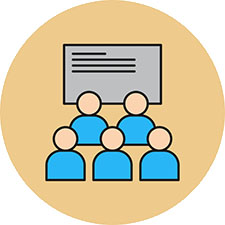
Small Class Size
2 to 8 students
Conducive Learning Environment

Customized Coaching
Reinforcing current school topics
1 to 1 Coaching

Hones Exam Skills
Time Management Skills
Exam Questions Training

Proven Track Records
> 86% Scoring A
> 93% improvement

Lesson Duration
2 Hrs Weekly (Sec & JC)
1.5 Hrs Weekly (Pri)
Hi Lewis, this is Edwin Goh, Elliot’s father. Elliot completed his Physics paper yesterday and felt he did fine. Grades aside, I would like to thank you for guiding Elliot the past 1.5 years. He has certainly gained tremendous confidence in Physics, and even found the subject interesting! We will call upon you again if assistance is needed. Meanwhile, I wish you all the best. Cheers!
H2 Physics, Raffles Institution
Explore Other Subjects

Primary School

Secondary School



